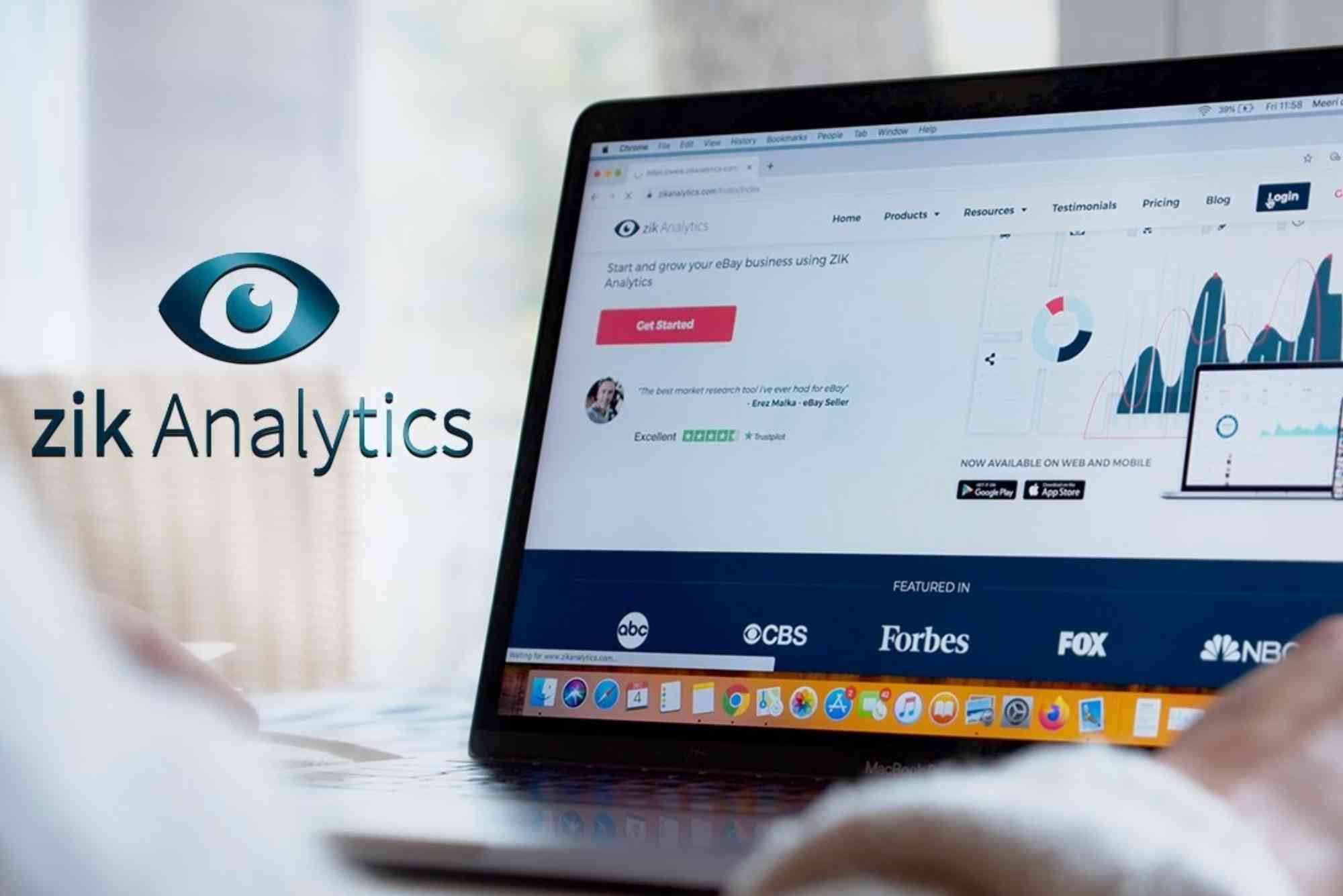Why Data Analytics Meaning Matters for Online Business
In today’s digital world, every click, view, and interaction generates valuable information. The data analytics meaning goes beyond simple numbers or graphs—it’s the process of turning raw data into insights that shape smarter business decisions. For online businesses, understanding the meaning of data analytics can mean the difference between random marketing efforts and data-driven growth. Whether you’re running an e-commerce store, a SaaS platform, or a digital marketing agency, data analytics is the backbone of your decision-making process.
What Is Data Analytics Meaning in Simple Terms
The term data analytics meaning refers to the process of collecting, cleaning, and interpreting data to identify patterns, trends, and insights. It helps businesses understand customer behavior, predict future outcomes, and optimize performance. In online businesses, it involves tracking metrics such as website traffic, conversion rates, customer engagement, and revenue. The goal is to translate these numbers into actionable strategies.
Modern online businesses rely heavily on analytics tools like Google Analytics, Mixpanel, and HubSpot. These tools capture user interactions in real-time, helping brands measure the effectiveness of campaigns, understand audience preferences, and enhance user experience. Without understanding the meaning of data analytics, businesses risk relying on assumptions instead of facts.
Why Data Analytics Is Essential for Online Businesses
Data analytics empowers businesses to make informed decisions, improve marketing efficiency, and increase profitability. Online businesses deal with massive amounts of data daily, from user sign-ups to checkout behaviors. Understanding how to analyze and apply that data creates a competitive edge.
Better Customer Understanding
One of the key reasons data analytics meaning matters is customer insight. Analytics allows companies to segment audiences, track buyer journeys, and identify what motivates conversions. With this understanding, businesses can tailor content, offers, and services to meet customer needs more effectively.
For example, an e-commerce store analyzing its traffic might discover that most visitors abandon their carts on mobile devices. This insight could lead to a redesign of the mobile checkout process, reducing cart abandonment rates and improving sales.
Enhanced Marketing Strategies
Data analytics ensures marketing budgets are used wisely. Instead of relying on guesswork, online businesses can analyze which marketing channels bring the best return on investment (ROI). Whether it’s social media, email marketing, or paid advertising, analytics provides clear evidence of what works.
Through data analytics meaning, marketers can measure engagement metrics like click-through rates, bounce rates, and conversion paths. By doing so, they can fine-tune campaigns and allocate resources where they matter most.
Improved Decision-Making
When business owners understand the meaning of data analytics, decision-making becomes more precise. Every action, from launching a new product to setting pricing strategies, can be backed by data. This minimizes risks and increases success rates.
Online businesses using analytics gain real-time visibility into performance. They can track trends, anticipate shifts in consumer behavior, and adapt quickly. The ability to respond to data insights ensures businesses stay agile and competitive in a constantly changing digital market.
Boosted Customer Retention
Analytics isn’t just about attracting new customers—it’s also about retaining them. By studying repeat purchase patterns, feedback, and churn rates, companies can identify what keeps customers coming back.
For example, subscription-based businesses use analytics to understand user drop-off points. They can then implement personalized communication or discounts to re-engage inactive customers. In the long run, this builds loyalty and lifetime value.
Types of Data Analytics Used in Online Businesses
To truly understand data analytics meaning, it’s important to recognize its main categories. Each type serves a unique purpose in business growth.
Descriptive Analytics
This form explains what has happened in the past. For example, it answers questions like “How many visitors did the website receive last month?” or “What was the total sales revenue?” Descriptive analytics summarizes historical data into meaningful insights, helping businesses evaluate performance and trends.
Diagnostic Analytics
Once you know what happened, the next step is understanding why it happened. Diagnostic analytics investigates causes behind trends or anomalies. If an online store sees a sudden drop in traffic, diagnostic analytics can uncover whether it was due to broken links, reduced ad spend, or seasonal changes.
Predictive Analytics
Predictive analytics uses statistical models and machine learning to forecast future outcomes. For instance, it can predict which customers are likely to purchase again or which products will trend next month. By using predictive insights, businesses can plan marketing campaigns and inventory accordingly.
Prescriptive Analytics
This is the most advanced type—it suggests actions to achieve the best results. For example, if data shows that email campaigns sent on Tuesdays perform better, prescriptive analytics might recommend adjusting all email schedules to that day for maximum engagement.
Real-World Applications of Data Analytics in Online Businesses
E-Commerce Optimization
E-commerce platforms thrive on data. Analytics reveals customer behavior patterns, such as which products are frequently viewed together or which categories generate the most sales. By analyzing this data, businesses can recommend products more effectively, personalize user experiences, and optimize pricing strategies.
Content Marketing and SEO
Understanding the data analytics meaning is vital for content marketing. Analytics tools track which blog posts, videos, or infographics receive the most engagement. This helps marketers refine their content strategy, focusing on what resonates with audiences. Businesses seeking to improve their online visibility can also consult SEO Expert Help to better align their content with data-driven insights.
Conversion Rate Optimization (CRO)
Every online business aims to convert visitors into paying customers. Data analytics helps identify friction points in the user journey—pages with high bounce rates, checkout issues, or ineffective calls-to-action. Using insights from analytics, companies can test different layouts or offers. For further guidance, exploring Optimizely CRO Resources can enhance conversion strategies using proven optimization frameworks.
Social Media Performance Tracking
Social platforms provide enormous data volumes—likes, shares, comments, and click-through rates. By analyzing these metrics, businesses can determine which content type drives engagement and where to focus their social media efforts.
Challenges in Implementing Data Analytics
Despite its benefits, applying analytics effectively requires strategy and consistency. Some common challenges include data quality, tool selection, and skill gaps.
Businesses often struggle with data accuracy due to inconsistent tracking setups or incomplete metrics. Using the right combination of analytics tools and ensuring proper implementation is crucial for reliable insights.
Additionally, interpreting data correctly requires expertise. Many online businesses invest in training or hire data specialists to make sense of complex reports. Without the right understanding of data analytics meaning, raw data can lead to misinformed decisions.
The Future of Data Analytics in Online Business
The future of online business is data-driven. With advancements in AI and automation, analytics is becoming more intelligent and accessible. Predictive and prescriptive analytics are expected to dominate, allowing businesses to not only understand trends but also take proactive actions.
AI tools can now process large datasets faster and uncover hidden patterns humans might miss. As data privacy regulations evolve, businesses must also ensure transparency and ethical use of analytics. Companies that balance data insight with user trust will lead the next generation of online success.
How to Get Started with Data Analytics
For online businesses new to analytics, starting simple is key. Begin by defining goals—what do you want to measure and why? Choose tools like Google Analytics or Hotjar for website insights, and ensure tracking codes are implemented correctly.
Next, identify key performance indicators (KPIs) relevant to your objectives. If your goal is increasing conversions, focus on click-through rates and checkout completion data. Regularly review reports, experiment with small changes, and measure results.
Consistency is essential. Analytics isn’t a one-time task; it’s an ongoing process of observation, testing, and improvement.
Turning Data into Business Growth
Understanding the data analytics meaning is no longer optional—it’s essential for online success. It enables businesses to move from assumptions to accuracy, from random strategies to data-backed decisions. Whether you’re optimizing your e-commerce store, improving SEO performance, or enhancing conversions, analytics provides the roadmap to measurable growth.
Online businesses that harness the power of analytics stay ahead of competitors by adapting to trends, understanding their audiences, and continually improving operations. The key lies in transforming data into action.
Ready to unlock your business potential? Start exploring analytics today and combine insights with expert strategies. Partner with professionals like SEO Expert Help or leverage Optimizely CRO Resources to maximize performance and accelerate online growth through the power of data.
FAQs
What is the basic meaning of data analytics?
Data analytics means examining data sets to uncover insights, trends, and patterns that help make informed business decisions.
Why is data analytics important for online business?
It helps understand customer behavior, optimize marketing campaigns, and increase revenue through data-backed strategies.
What are examples of data analytics in online business?
Examples include tracking website traffic, monitoring sales conversions, and using customer feedback data to improve products.
Can small businesses use data analytics effectively?
Yes. Even small businesses can use free or affordable tools to analyze data and make smarter marketing decisions.
How does data analytics improve customer experience?
By understanding preferences and behavior, businesses can personalize experiences, making customers feel valued and increasing loyalty.







